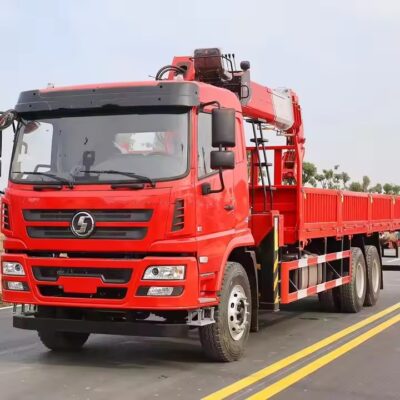Daily maintenance is crucial for ensuring the safety and efficiency of wrecker trucks. Here are some detailed tips to keep your wrecker truck in top condition:
1. Inspect Stressed Components
Key Areas to Inspect
- Sub-frame and Lifting Arm: Check for any signs of damage, deformation, or cracks. These components are crucial for structural integrity.
- Boom and Wire Rope: Look for excessive wear, scratches, burn marks, or signs of seizure. Ensure the wire rope is not frayed or kinked.
- Hook and Cylinder Mounts: Inspect for cracks and ensure they are securely attached without excessive wear.
- Boom Seat and Fork: Check for stability and any signs of damage.
Address Issues Promptly
- Prevent Accidents: Immediate attention to any issues can prevent accidents during operation.
- Regular Inspection: Conduct visual and manual inspections regularly, focusing on high-stress points and friction surfaces.
2. Lubrication and Pressure Checks
- Lubrication: Ensure all moving parts are well-lubricated to minimize friction and wear. Use high-quality lubricants suited to your truck’s specifications.
- Pressure Retention: Before use, check the lifting mechanism’s pressure retention performance. Make sure it holds pressure without leaking.
- Loading: Avoid overloading or uneven loading, which can strain the vehicle’s components and lead to mechanical failure.
3. Hydraulic System Maintenance
Prevent Contamination
- Foreign Particles: Most hydraulic system failures are due to contamination by foreign particles. Keep the system clean to avoid these issues.
- Oil Quality: Use clean, high-quality hydraulic oil. Replace it regularly and avoid mixing different types of oils.
Regular Inspection and Replacement
- Hydraulic Oil: Regularly inspect and replace hydraulic oil as per manufacturer guidelines. This ensures optimal performance and longevity of the system.
- System Cleanliness: Clean the hydraulic system thoroughly to prevent contamination.
Maintain System Pressure
- Pressure Levels: Keep the hydraulic system pressure within ±10% of the rated pressure to ensure proper functioning.
- Temperature Monitoring: If the system operates for long periods or in high-temperature environments, ensure the hydraulic oil temperature does not exceed 60°C (140°F).
4. Operational Practices
Power Take-Off and Speed Management
- Power Take-Off: Disengage the power take-off when driving to prevent unnecessary wear on the system.
- Towing Speed: Reduce speed when towing vehicles to ensure stability and safety.
Check for Leaks
- Frequent Inspections: Regularly check for leaks in the hydraulic system. Address any leaks immediately to prevent system failure or damage.
Bolts and Pins
- Tightness of Bolts: Regularly check the tightness of major bolts, especially those positioning the pins, to ensure they are secure.
- Positioning Bolts: Pay close attention to bolts in critical areas, ensuring they are not loose or damaged.
5. Winch Operation
Wire Rope and Winch Drum
- Wire Rope Loops: During winch operation, ensure there are at least five loops of wire rope on the winch drum to maintain grip and prevent slippage.
- Winch Clutch Control: Do not touch the winch clutch control while the wire rope is under load to avoid accidents or damage.
Additional Tips
- Regular Training: Ensure operators are trained on proper maintenance and operational procedures to minimize human error.
- Record Keeping: Maintain detailed records of inspections, maintenance activities, and repairs to track the truck’s condition and predict potential issues.
By following these daily maintenance tips, you can keep your wrecker truck in optimal condition, ensuring safety and reliability during operations. Regular maintenance not only extends the lifespan of the vehicle but also enhances performance and reduces the risk of breakdowns.













